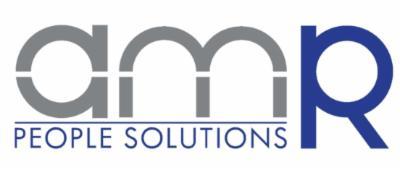
STAFF NURSE - POST BASIC RENAL(FAMILY MEDICARE SDN BHD)
Salary undisclosed
Checking job availability...
Original
Simplified
Department: Clinical Department Reports to: Clinical Manager Job Summary: Staff Nurse Post Basic Renal provides specialized nursing care to patients with kidney disease and those undergoing renal replacement therapies, such as dialysis. This role requires advanced knowledge and skills in renal nursing, with an emphasis on patient assessment, dialysis treatments, patient education, and collaboration with the multidisciplinary team. The post-basic renal nurse is also responsible for the management of renal complications, ensuring the delivery of high-quality care in a safe and compassionate environment. Key Responsibilities: Patient Care and Assessment: o Conduct thorough assessments of renal patients, including monitoring vital signs, assessing laboratory results, and evaluating overall patient condition. o Develop and implement individualized care plans tailored to the specific needs of renal patients, particularly those undergoing hemodialysis or peritoneal dialysis. o Monitor patients for signs of complications related to kidney disease, dialysis, or comorbid conditions, taking appropriate action when needed. Dialysis Procedures: o Oversee and perform dialysis procedures, ensuring proper machine setup, patient positioning, and machine functioning. o Initiate, monitor, and discontinue hemodialysis treatments according to established protocols. o Recognize and manage complications during dialysis Patient Education and Support: o Educate patients on their renal condition, the dialysis process, and lifestyle modifications such as fluid management, dietary needs, and medication adherence. o Provide emotional support to patients and families, addressing concerns and offering guidance on coping with chronic kidney disease (CKD) and dialysis treatment. o Support patients in understanding their treatment plan, including self-care techniques and long-term management of kidney disease. 2 Medication and Treatment Management: o Administer medications as prescribed, ensuring accurate dosage and monitoring for side effects. o Educate patients about their prescribed medications and the importance of adherence to prevent complications. o Collaborate with the medical team to adjust treatment plans based on changes in patient condition or laboratory results. Collaboration with Healthcare Team: o Work closely with nephrologists, dietitians, social workers, and other healthcare professionals to provide holistic care to renal patients. o Participate in multidisciplinary rounds, providing feedback on patient progress and contributing to care planning. o Assist in the coordination of patient care, including referrals to specialists and follow-up services Infection Control and Safety: o Adhere to infection control protocols to prevent cross-contamination, especially during dialysis procedures. o Follow established guidelines for catheter care and dialysis machine hygiene. o Ensure patient safety during treatments by continuously monitoring for any signs of adverse reactions. Documentation and Record-Keeping: o Review and maintain accurate treatment records and patient logs. o Assign duties and responsibilities to nursing staff and dialysis assistant, providing clear instructions and ensuring tasks are completed effectively. o Maintain comprehensive and up-to-date patient records, documenting treatment progress, vital signs, and any changes in the patient’s condition. o Ensure thorough and accurate medical documentation for each patient, including detailed treatment plans, progress updates, and any incidents or complications encountered. o Document dialysis sessions, medication administration, and all patient care activities in a timely and precise manner, ensuring all records are complete and comply with established standards. Inventory and Stock Management: o Validate and confirm dialysis stock to be ordered, ensuring all necessary materials are available for patient treatments. o Conduct regular stock checks in both the storage area and dialysis treatment space to ensure adequacy and prevent shortages. Professional Development: Engage in continuous professional development and stay current with advancements in renal nursing care, treatment techniques, and equipment. o Participate in relevant workshops, training, and seminars to enhance expertise in renal nursing. Staff Supervision and Training: o Supervise the work of dialysis nurses and dialysis assistants, ensuring that care standards are met. o Act as a reference point for dialysis nurses and assistants, providing guidance and support as needed. Emergency Response: o Respond promptly to emergency situations during dialysis treatments, managing complications such as cardiac arrest, hypotension, or bleeding. o Take swift, decisive action to stabilize patients and ensure their safety during emergency events. Shift and Coverage Responsibility: o Provide coverage for shifts, including holidays as required. o Ensure continuity of care during shift transitions, providing clear handover reports to upcoming staff. Leadership and Communication: o Foster an environment of teamwork and collaboration, ensuring that all team members are engaged and motivated. o Handle communication with the Person In-charge (PIC) of the dialysis center, addressing any operational concerns or requests from upper management. o Respond to directives from management and implement changes as needed, adapting practices to meet evolving standards and goals. Qualifications: Education: o Registered Nurse with a Post Basic qualification in Renal Nursing o Valid and active nursing license (APC or equivalent) as per local regulatory requirements. Experience: o Minimum of 2 years of clinical nursing experience, with at least 1 year in a renal unit or dialysis setting. o Experience in managing patients undergoing dialysis is highly preferred. Skills and Competencies: o In-depth knowledge of renal disease, dialysis techniques, and related treatments. 4 o Strong assessment and clinical decision-making skills, particularly in a critical care setting. o Ability to educate and provide emotional support to patients and their families regarding chronic kidney disease and dialysis. o Skilled in operating dialysis machines and managing dialysis-related complications. o Excellent communication skills, both with patients and interdisciplinary healthcare teams. o Strong attention to detail in patient monitoring and record-keeping.

